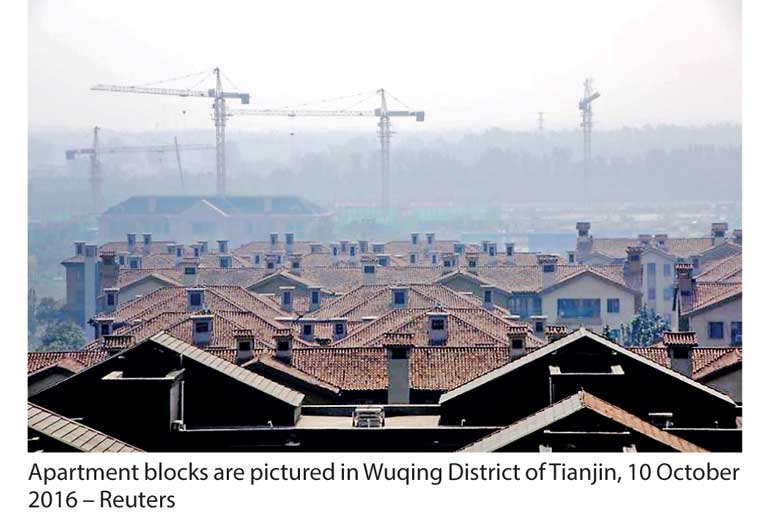Monday Feb 23, 2026
Monday Feb 23, 2026
Wednesday, 15 March 2017 00:00 - - {{hitsCtrl.values.hits}}
 Beijing (Reuters): China issued a raft of upbeat data on Tuesday showing the economy got off to a strong start to 2017, supported by strong bank lending, a government infrastructure spree and a much-needed resurgence in private investment.
Beijing (Reuters): China issued a raft of upbeat data on Tuesday showing the economy got off to a strong start to 2017, supported by strong bank lending, a government infrastructure spree and a much-needed resurgence in private investment.
Solid growth is welcome news for China’s policymakers as they turn their focus to containing risks from a sharp build-up in debt ahead of a major leadership reshuffle later this year.
But economists are not sure how long the pace can be sustained as the central bank takes a tighter stance on credit and exporters brace for a surge in U.S. protectionism.
Fixed-asset investment expanded more strongly than expected in the first two months of the year as growth in private investment more than doubled from 2016, while surging demand for steel for new roads, bridges and homes lifted factory output.
That added to readings last week showing robust imports, particularly of commodities such as iron ore, and a sharp rise in producer prices which is boosting industrial profits.
“Today’s data appeared to be mainly driven by infrastructure spending and a rebound in the real estate sector,” said Zhou Hao, a Singapore-based economist at Commerzbank.
China has cut its growth target to around 6.5% this year to give policymakers more room to push through painful reforms to reduce financial risks created by years of debt-fueled stimulus. The world’s second-largest economy grew 6.7% last year, the slowest pace in 26 years.
China’s first-quarter economic growth could accelerate to 7% year-on-year, from 6.8% in the last quarter, economists at OCBC wrote in a note last week.
But OCBC and many other China watchers expect that pace will begin to slow starting in spring as the payoff from last year’s stimulus spree begins to fade.
“This strength remains heavily reliant on rapid investment growth that will be difficult to sustain given clear signals that the fiscal and monetary policy stance will be less supportive this year,” says Julian Evans-Pritchard, a Singapore-based China Economist at Capital Economics.
China’s new loans fell sharply in February from near-record levels the previous month but were still higher than expected.
ANZ said the rapid credit expansion might trigger further hikes in short-term interest rates, following two early this year, as policymakers remain concerned about high leverage in the economy.